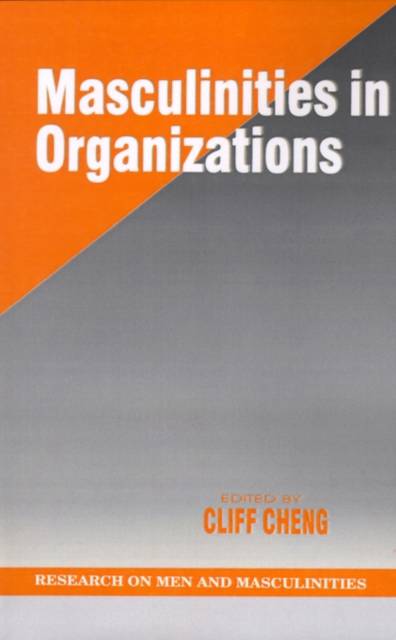
- Retrait gratuit dans votre magasin Club
- 7.000.000 titres dans notre catalogue
- Payer en toute sécurité
- Toujours un magasin près de chez vous
- Retrait gratuit dans votre magasin Club
- 7.000.0000 titres dans notre catalogue
- Payer en toute sécurité
- Toujours un magasin près de chez vous
Masculinities in Organizations
216,95 €
+ 433 points
Description
Most popular discussions of men and gender treat masculinity as an entirely psychological issue. This book edited by Cliff Cheng, part of a new wave of research on masculinity, shows the issues are much wider. Gender is an aspect of organizational life, workplace culture, and business politics. Vivid and sometimes surprising case studies--including the space shuttle disaster, an all-male military collage, and the ethnically mixed management of a Japanese-American firm--show different forms of masculinity in the making and under challenge. Conceptual and empirical chapters in the book both enrich our understanding of hegemonic masculinity, and raise intriguing questions about non-hegemonic masculinities. The issues explored in the book are important for organizational studies, for the social science of gender, and for all concerned with the future patterns of power in our business-dominated world. --R.W. Connell, Univeristy of Sydney, Australia, and author of Masculinities "Cliff Cheng′s newest contribution to the study of men and masculinities as a gender within and outside other group memberships is a welcome addition to embedded intergroup relations theory." --Clayton P. Alderfer, "This volume fills a gap in our knowledge by providing empirical studies of the role masculine genders play in various, diverse organizations. Studies of the Challenger disaster and American managers in Japanese-owned firms were especially fascinating because they show so clearly the multiple masculinities that arise in different occupations and racial groups. Studies of the Citadel and law firms provide interesting insights into how hegemonic masculinities operate. Still, other chapters present new theorizing and quantitative results. Overall, an impressive collection of work that offers a wealth of ideas for future research and informed teaching and practice." --Janice M. Beyer, Graduate School of Business, The University of Texas, Austin The latest volume in the Research on Men and Masculinities series, Masculinities in Organizations provides an interdisciplinary, cross-cultural study of masculinities in organizational settings. Editor Cliff Cheng sheds light on misconceptions that have plagued the study of organizations and discusses workplace roles and the ways they relate to and affect masculinity. This book makes an effective case both that sex and gender are not synonymous and that masculinity is not homogeneous. The book will add to a growing literature that calls for pro-social change in groups and organizations to overcome the problem of hegemonic masculinity. Timely and provocative, Masculinities in Organizations will be an invaluable resource for anyone interested in organizational behavior, organizational studies, gender roles, and men′s studies.
Spécifications
Parties prenantes
- Editeur:
Contenu
- Nombre de pages :
- 232
- Langue:
- Anglais
- Collection :
- Tome:
- n° 9
Caractéristiques
- EAN:
- 9780761902249
- Date de parution :
- 01-10-00
- Format:
- Livre broché
- Format numérique:
- Trade paperback (VS)
- Dimensions :
- 142 mm x 217 mm
- Poids :
- 312 g

Les avis
Nous publions uniquement les avis qui respectent les conditions requises. Consultez nos conditions pour les avis.





